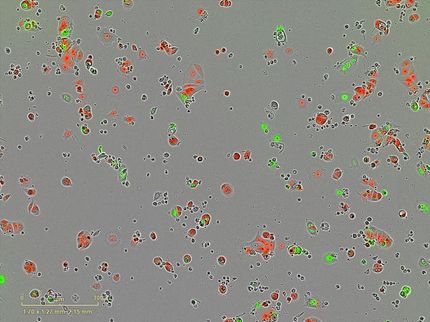Coffee break: Compound brewing new research in colon, breast cancer
Advertisement
A compound in coffee has been found to be estrogenic in studies by Texas AgriLife Research scientists. Though the studies have not been conducted to determine recommended consumption amounts, scientists say the compound, called trigonelline or "trig," may be a factor in estrogen-dependent breast cancer but beneficial against colon cancer development.
"The important thing to get from this is that 'trig' has the ability to act like a hormone," said Dr. Clinton Allred, AgriLife Research nutrition scientist. "So there is a tie to cancer in the sense that we are looking at estrogen-dependent cancer cells. But that doesn't suggest that it would actually cause the disease. I don't believe there should be any concern about drinking coffee at this point."
His report was published in the Journal of Nutrition. Allred's lab studies dietary compounds that can mimic the hormone estradiol – the primary hormone in women. His main focus has been to look at how estrogen protects against the development of colon cancer. Estradiol is one of three estrogen hormones. "There's a history of these compounds in crops such as soy," Allred said. "Soy has a number of different compounds that actually can mimic estradiol in several disease states some of which are good and some of which have the potential to be more deleterious-type effects."
Allred said a former colleague mentioned an interest in finding the properties of "trig" – a natural compound used in traditional Indian culture for post-menopausal women.
Because the chemical structure of "trig" was so unlike estradiol, Allred didn't think the compound would be estrogenic.
"Estrogen-dependent tumors in the presence of estradiol will grow faster," Allred said. "If you use those cells in a laboratory setting, you can determine whether something is estrogenic because they will literally make a tumor grow faster."
He said that a series of experiences and different approaches showed that "trig," a vitamin derivative, was fairly estrogenic at very low concentrations. He added that "trig" is in coffee beans, though in different amounts depending on the variety of coffee bean. The two major types of coffee beans used for what is consumed in the U.S. both contain it, he said. Nevertheless, the researchers have no idea what the exposure level would be or whether a particularly exposure – say from one cup of coffee – would be in the range seen in the laboratory tests.



























































